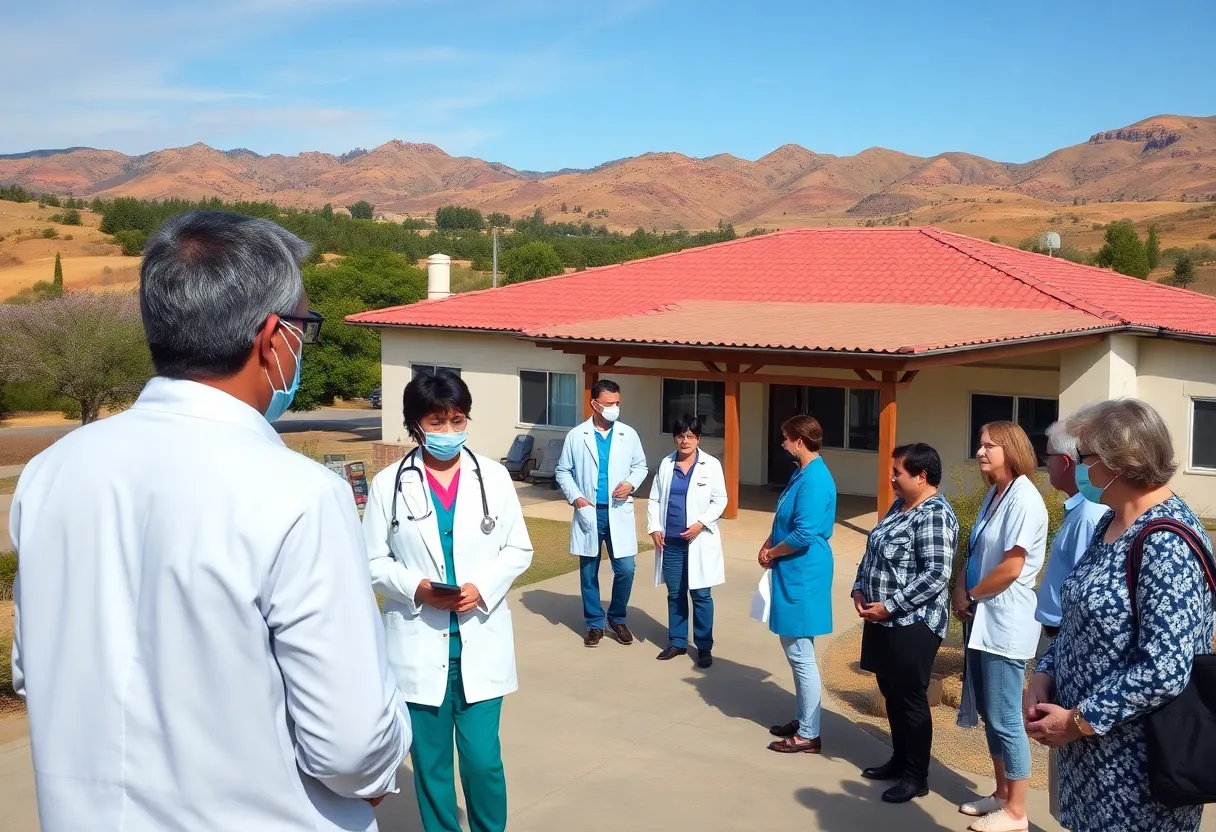News Summary
Six rural hospitals in California are identified as being at immediate risk of closure due to proposed Medicaid cuts in the new House Republican budget. This alarming trend threatens healthcare access for millions in rural communities, where local facilities are crucial for adequate medical services. The financial strain on a total of 23 hospitals could lead to dire consequences, including longer travel times for healthcare and potential economic impacts on local economies that rely on these hospitals for support.
California’s rural healthcare system faces a serious threat as six rural hospitals have been identified as being at “immediate risk of closure.” A recent report from the Center for Healthcare Quality and Payment Reform indicates these closures could stem from proposed cuts to Medicaid included in the newly unveiled House Republican budget bill. These potential cuts could significantly disrupt healthcare services across vulnerable rural communities, contributing to a nationwide crisis affecting approximately 300 hospitals.
According to the 2020 Census and American Community Survey, about 66 million Americans, or roughly 5.8% of California’s population, live in rural areas, and they heavily rely on local hospitals for their healthcare needs. In California, there are 58 rural hospitals, with the six at immediate risk representing just over 10% of the total. Alarmingly, the report notes that 23 rural hospitals in California are currently threatened by the proposed Medicaid cuts, reflecting the severe financial strain these facilities face.
Nationally, the report reveals that approximately 700 rural hospitals, one-third of the total, are on shaky financial ground, struggling to maintain operations. Since 2005, nearly 200 rural hospitals have closed across the United States, with eight closures occurring in California alone. The impact of these closures has been profound, resulting in millions losing access to vital emergency services, inpatient care, and other healthcare resources readily available in urban environments.
Rural hospitals typically operate on narrow financial margins, with Medicaid funding serving as a lifeline for many of them, particularly in areas with high public insurance enrollment. Without sufficient funding, these hospitals face immense challenges in providing essential healthcare services. The proposed cuts of $715 billion to Medicaid could jeopardize their survival and impact health coverage for an estimated 13.7 million people across the nation, including a significant number in California.
Most of the at-risk hospitals cater to isolated communities, making their potential closures especially worrisome. Residents may have to travel long distances—up to 90 minutes or more—for essential care if their local hospitals close. Rural facilities often serve as the sole providers of critical services, such as lab tests and primary care.
In addition to direct healthcare services, hospital closures could have wider economic implications. Many rural hospitals play a vital role in supporting agriculture and energy sectors that are crucial for the nation’s food supply and production capabilities. The closures could threaten jobs and economic stability within these communities.
Labor and delivery services in California are particularly vulnerable. More than 50 labor and delivery units have been shut down in the last decade due to financial hardships and workforce shortages. Recent hospital closures are expected to exacerbate this situation, forcing patients and families to travel longer distances to access necessary maternity care. Approximately 40% of births in California are funded through Medicaid, emphasizing the critical link between Medicaid funding and maintaining hospital maternity wards.
The state of California is facing an impending shortage of over 1,100 OB-GYNs by 2030, compounded by declining birth rates and the existing financial stresses on hospitals. In light of these challenges, many facilities are exploring telehealth options and collaborative care models as potential solutions to address workforce deficits and ensure continuity in maternity services.
The current regional healthcare crisis in California’s rural areas is likely to intensify as the funding structures and state regulations continue to evolve, especially with the potential changes to the Affordable Care Act looming. As healthcare providers strive to adapt to these challenges, the need for robust support systems and innovative solutions to ensure community health access remains critical.
Deeper Dive: News & Info About This Topic
- Patch: 6 CA Hospitals at Immediate Risk of Closure
- Wikipedia: Rural Healthcare in the United States
- New York Times: Maternity Wards Closing
- Google Search: Rural Hospital Closures
- Los Angeles Times: California Hospitals Scramble on Earthquake Retrofits
- Google Scholar: Rural Healthcare Challenges
- California Labor Law: New Minimum Wage for Healthcare Workers
- Encyclopedia Britannica: Rural Hospitals
- Chief Healthcare Executive: Many California Hospitals at Risk
- Google News: California Healthcare System

Author: Anaheim Staff Writer
The Anaheim Staff Writer represents the experienced team at HEREAnaheim.com, your go-to source for actionable local news and information in Anaheim, Orange County, and beyond. Specializing in "news you can use," we cover essential topics like product reviews for personal and business needs, local business directories, politics, real estate trends, neighborhood insights, and state news affecting the area—with deep expertise drawn from years of dedicated reporting and strong community input, including local press releases and business updates. We deliver top reporting on high-value events such as major conventions at the Anaheim Convention Center, including NAMM and VidCon, exciting games at Angel Stadium and Honda Center, and developments at Disneyland Resort Our coverage extends to key organizations like the Anaheim Chamber of Commerce and Visit Anaheim, plus leading businesses in hospitality, entertainment, and innovation that power the local economy As part of the broader HERE network, including HERECostaMesa.com, HEREHuntingtonBeach.com, HERESantaAna.com, and HERELosAngeles.com, we provide comprehensive, credible insights into Southern California's dynamic landscape.




